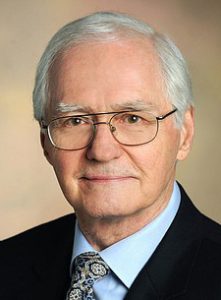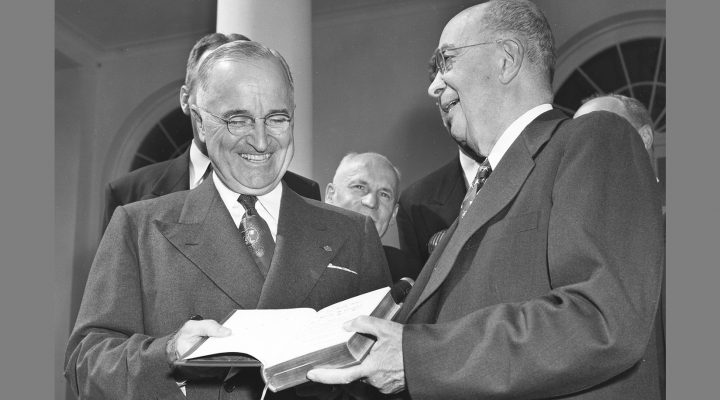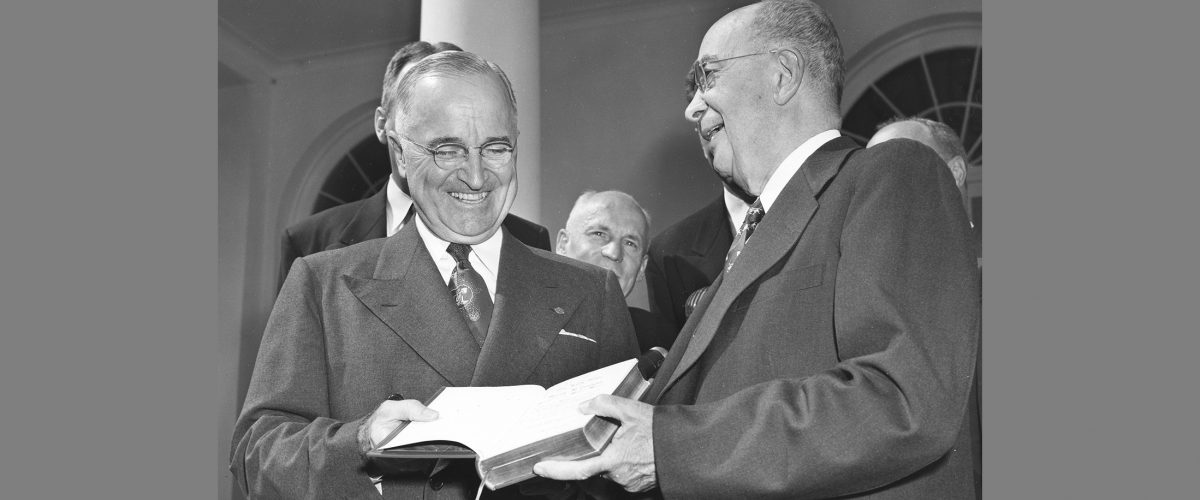On July 2, I was on a Zoom gathering for a discussion of the new book by Brian Kaylor and Beau Underwood: Baptizing America, How Mainline Protestants Helped Build Christian Nationalism.
During the discussion, one of the authors observed that many Americans seem to be under the impression that we settled the issue of church-state separation long ago — only to be surprised now by the recent emergence of Christian nationalism in new and militant forms. I asked why he thought this was the case, that an issue apparently settled comes roaring back periodically. Kaylor said we simply forget our history.

Richard Conville
He then briefly recounted the story of Thomas Helwys, an early Baptist in London, whose 1612 treatise, according to Baptist historian Bill Leonard, was the first statement of absolute religious freedom in the English language. It was addressed to King James I himself, declaring that he, the king, “hath no power over ye immortall souls of his subjects, to make lawes and ordinances for them, and to set spiritiall Lords over them.”
The king, tiring of Helwys’ persistence in the matter, sent him to Newgate prison in 1615, where he died the next year.
If you are a Baptist reading this, or any other self-identified evangelical, there’s a good chance you’ve never heard of this evangelical forebear, Thomas Helwys. You can’t forget history you never knew. Not knowing their roots has blinded most Baptists and other evangelicals to the growth of Christian nationalism all around them.
I’ve had my own eyes opened recently to a modern example of Christian nationalism. On Sept. 22, 1952, President Harry S. Truman held a Rose Garden ceremony to present the Revised Standard Version of the Bible to the nation. This new translation was hot off the press, and he is pictured (in the Truman Library and Museum) receiving a copy from Luther A. Weigle, dean emeritus of the Yale Divinity School (a Mainline protestant institution) and head of the translation team.
So, here we have President Truman in the White House Rose Garden proudly recommending a Bible to the nation, and 72 years later, presidential candidate Donald Trump proudly recommending the God Bless America Bible on YouTube (the King James Version bound with the Declaration of Independence, Constitution and Pledge of Allegiance). Both actions show American political leaders identifying Christianity with American democracy. Both are forms of Christian nationalism.
It just won’t go away; it keeps coming back. But what is it about church-state relations that won’t get finally settled? Christian nationalism is its latest form. But what is that?
Chuck Poole, recently retired pastor of Northminster Baptist Church in Jackson, Miss., defines it this way: “Christian nationalism is an ideological agenda that seeks cultural dominance for conservative evangelical Christianity over every other way of looking at life — an agenda which the most thoughtful kind of Christianity recognizes as contrary to the spirit of the Jesus of the four Gospels who, when tempted to take the path of popular power and control, said ‘No.’”
“The Louisiana and Oklahoma mandates violate the religious liberty of individuals.”
The Louisiana Legislature mandating the Ten Commandments (King James Version) be posted in every school room in the state is a direct example of seeking “cultural dominance for conservative evangelical Christianity.” Not only does it privilege one religion (Christianity) over others; it makes one version of the Bible, first published in 1611, the authoritative one over other versions, even those chosen by other faith traditions. Neither mandate is the role of government.
Amamda Tyler, executive director of Baptist Joint Committee for Religious Liberty in Washington, D.C., put it this way in her Oct. 25, 2023, congressional testimony: Christian nationalism is “a political ideology and cultural framework that seeks to fuse American and Christian identities. Christian nationalism seeks to privilege Christians and Christianity in law and policy. Christian nationalism uses the power of the state to attempt to force a set of religious beliefs or create one accepted form of religious belief.”
The Oklahoma secretary of education mandating a Bible in every classroom and that teachers teach from it are clear examples of using “the power of the state to … create one accepted form of religious belief.” He is using the power of the state to interfere with the freedom to choose one’s own religion. Neither is the role of government.
The Louisiana and Oklahoma mandates violate the religious liberty of individuals. Those individuals, and by extension, you and I, are free to choose our own religion or no religion. That is guaranteed by the First Amendment. That is the beauty of our democracy.
No government official has a right to tell any of us that we have chosen wrongly. Religious liberty is not the freedom of government officials, no matter how sincere they claim to be in their beliefs, to impose their own version of religion upon you and me.
Richard Conville is a retired professor of communication studies and long-time resident of Hattiesburg, Miss. This column was published in the July 11 issue of The Pine Belt News, Hattiesburg.
Related articles:
Jesus and the Ten Commandments | Opinion by Chuck Poole
Amanda Tyler testifies before Congress against Christian nationalism


